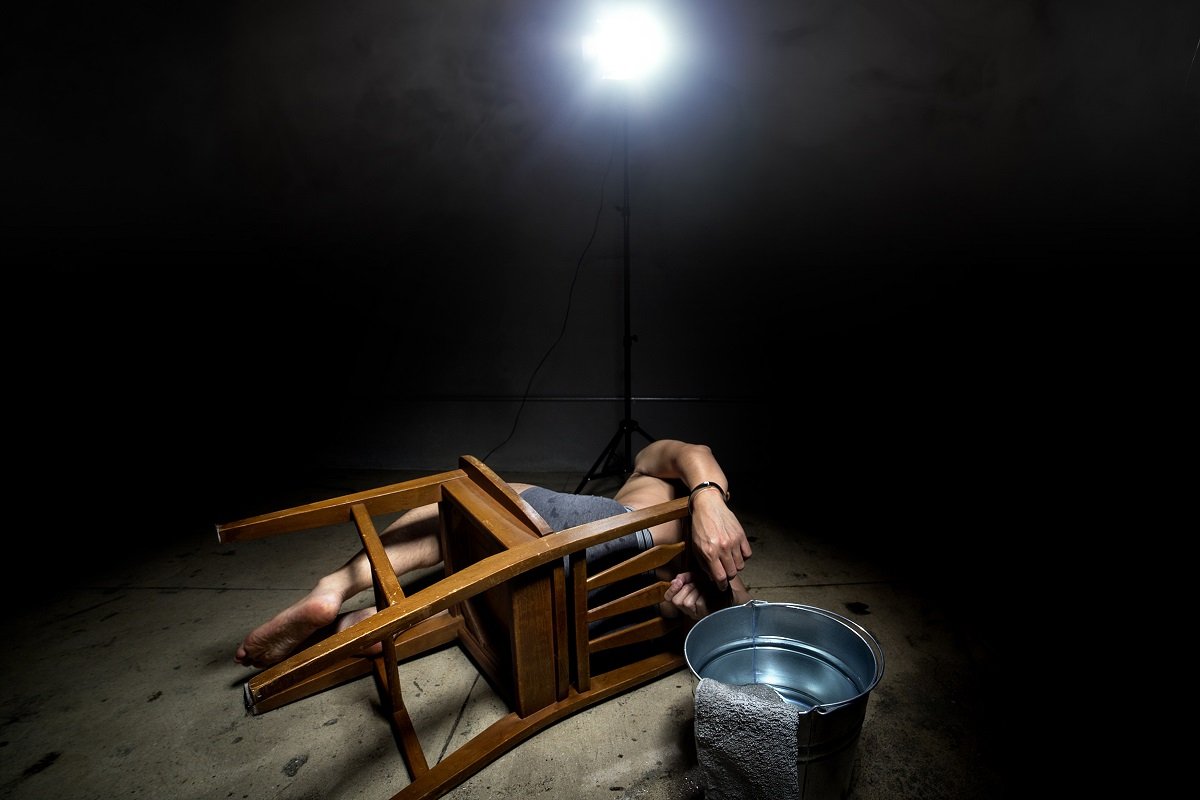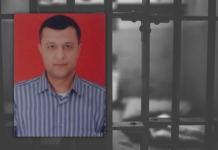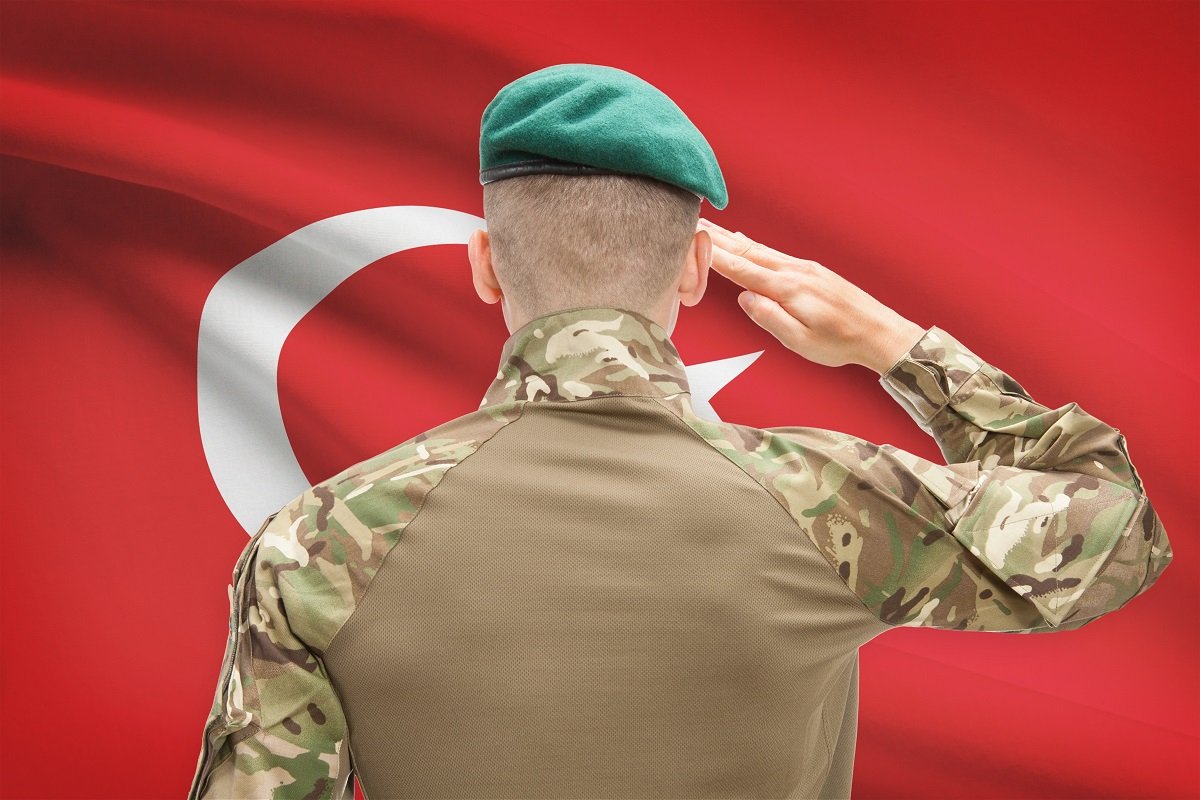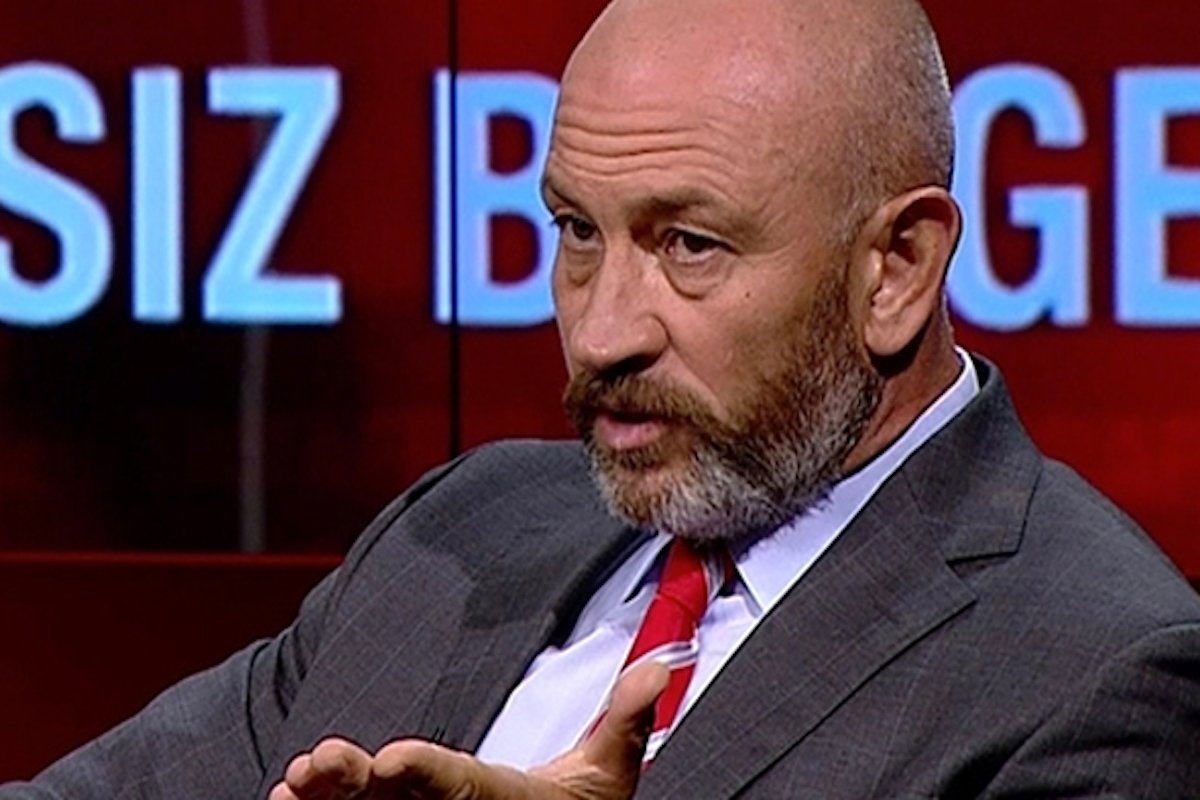A sergeant in Turkey’s special naval unit who fought against pirates in the Gulf of Aden was subjected to brutal torture by a team of former and active duty military members with the approval of the government of President Recep Tayyip Erdoğan, Nordic Monitor reported, citing judicial documents.
According to the gruesome details of torture and abuse revealed at a court hearing on July 23, 2018 in Ankara, Gökhan Karabacak, a 33–year-old sergeant in the Turkish navy’s elite special forces unit, Underwater Offense (Su Altı Taarruz, or SAT), the Turkish equivalent of the US Navy SEALS, was tortured at a military base in Istanbul. His ordeal continued at a police station after he was handed over to the authorities, who took shifts beating and kicking him while threatening to rape his wife in front of him.
Karabacak’s saga started on July 15, 2016 when he received an emergency deployment order from his commanding officer. He grabbed his gear and joined the team in a hurry. Nothing was out of ordinary as he had received similar deployment orders many times before and had served on secret missions, some overseas, often on an emergency basis. At one time, he even joined Combined Task Force 151, a multinational naval task force that combats piracy in the Gulf of Aden and off the eastern coast of Somalia.
As he was in a car bound for the airport from SAT command base in İstanbul’s Keçilik Bay, he thought he and his colleagues were being deployed to yet another cross-border operation. The plane took them to Akıncı Air Base in Ankara, where the SAT commandos were briefed on their mission, which was to secure the base against a terrorist threat. The Turkish capital had been the target of deadly terrorist attacks in 2015 and 2016, some blamed on the Islamic State in Iraq and Syria (ISIS) and others on the outlawed Kurdistan Workers’ Party (PKK). In one incident Turkish military personnel were attacked in a car bombing. At the air base he was assigned to stand guard in a section of the fenced perimeter.
Like all the SAT members, Karabacak had no idea he was one of many soldiers who were mobilized to make it appear that the military was carrying out a coup when in fact it was a false flag operation planned by President Erdoğan and his military and intelligence chiefs in order to launch a mass purge of pro-NATO officers from the Turkish military and staff the vacated positions with Islamists and neo-nationalists.
Complying with standing orders in the event of chaos, he returned to his SAT command base in Istanbul after the mayhem at Akıncı Air Base, the runway of which was bombed on the morning of July 16, allegedly because of the putschists on the base. When he arrived at the base, he was surprised to see some retired officers who had no authority or official reason to be there. Former colonel Ali Türkşen, who served time in prison for clandestine and illegal activities while serving in the military, was holding an M16 machine gun, giving orders to people around him.
Only during his third medical examination was the victim able to get the torture included in the record, with the doctor confirming the marks of torture on his body:
There were other retired officers lined up next to the retired colonel. In his testimony Karabacak identified former captain Erme Onat as holding a military-issued M-16 gun, retired major Ertan Kahya with a bat and retired noncommissioned officer Bulent Kuru. At the guard station located at the entrance to the base, he saw that there were several active duty officers who were forced to lie face down on the ground with their hands tied behind their backs. “As far as I could tell from the look on their faces, they were tortured,” he told the court.
Without even saying a word to Karabacak, Türkşen and his men handcuffed and blindfolded him. The torture sessions lasted for hours, at times joined by SAT Group Commander Col. Mustafa Turan Ecevit, who kicked and slapped the victim. Among the torturers was a man named Uğur Günaslan, who threatened to rape Karabacak’s wife.
After he was turned over to the police, another round of torture and abuse was awaiting him. He was taken a dark spot in the back of the Beykoz district courthouse for beatings by police officers under orders from a police chief named Alper Korkmaz. He was later taken to the Beykoz Police Station, where the torture and abuse continued until the early morning hours. One after another police officers came and joined in the beatings and then left, he recalled.
“At one point, a special ops officer nicknamed Rambo came in amid cheers and tortured me,” he said. The punches broke his eardrum, and his clothes were soaked in blood from his wounds. “Blood gushing from the noses and mouths of those who were tortured formed a small puddle on the floor,” Karabacak said.
He testified that both military prosecutor Öner Şentepe and public prosecutor Serkan Ağalday knew all about the torture and beatings and that they in fact approved of and endorsed such practices. Karabacak filed criminal complaints against all who were involved in the torture and ill-treatment including both prosecutors who supported such practices.
That complaint fell on deaf ears as torturers in Turkey were protected by a government decree issued by President Erdoğan that provided blanket immunity for officials who were involved in coup investigations. Decree-law No. 667, issued by the government on July 23, 2016, granted sweeping protections for law enforcement officers in order to prevent victims from pressing complaints of torture, ill treatment or abuse against officials. There were multiple cases in which Turkish prosecutors refused to investigate torture allegations, citing this decree-law, or KHK (Kanun Hükmünde Kararname).
Article 9 of the KHK stated that “legal, administrative, financial and criminal liabilities shall not arise in respect of the persons who have adopted decisions and fulfill their duties within the scope of this decree-law.” The decree was criticized by human rights organizations for being a clear breach of articles of the International Covenant on Civil and Political Rights (ICCPR) as well as the European Convention on Human Rights, to which Turkey is a party, yet it was never annulled. In fact, the Turkish parliament passed the decree into law on October 18, 2016. Another KHK issued by the Erdoğan government even extended immunity to civilians.
Public prosecutor Ağalday, who approved of the torture, was rewarded by the government. In December 2016 he was appointed to serve as a judge at the Istanbul Regional Court of Appeals.

Under police intimidation, a doctor named Hakan Şahin at the Istanbul Beykoz Public Hospital was afraid of recording the marks of torture and abuse when Karabacak was taken there for medical examinations on July 17 and 18. The doctor wrote that he observed only a slight injury on the face and ear but did not mention anything about torture. A medical report written on July 19 by Dr. Ali Ulvi Çalık of the forensic unit of a different hospital in Istanbul was much more detailed in recording the torture and abuse. The doctor even managed to write a sentence in the report that the victim alleged he was tortured and added his own observations that confirmed the allegations.
During a court hearing Karabacak explained the medical reports and highlighted the one on July 19 that confirmed his claims of torture. However, the judge did not act on his complaint, either, when he could have escalated the matter and order the prosecutor to investigate the torture.
In the meantime, on November 26, 2020 Karabacak was convicted at the end of a sham trial held at the Ankara 4th High Criminal Court on multiple charges including attempting to overthrow the government and was sentenced aggravated life, meaning that his rights would be severely restricted in prison and that he would have no chance of parole.
Full text of Gökhan Karabacak’s court testimony can be reached here.
















